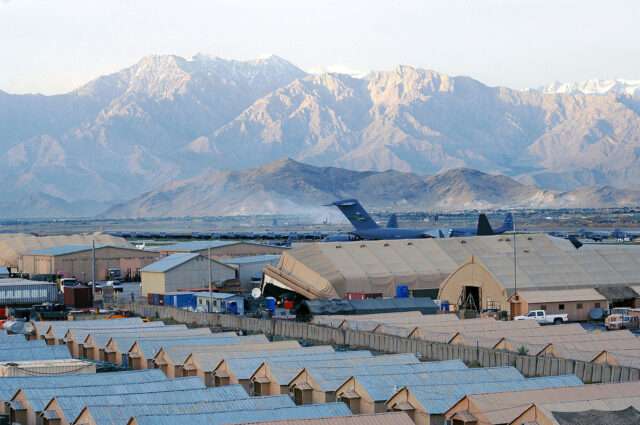RASC News Agency: Former U.S. President Donald Trump has ignited controversy with his recent assertion that China has assumed control of Bagram Airbase, Afghanistan’s most strategic military installation. Citing Bagram’s critical geopolitical location, Trump described the base as a “vital stronghold” now allegedly in the hands of Beijing. “I intended to retain Bagram,” Trump stated, “but now China controls it.” The Taliban swiftly dismissed the claim, denouncing it as “misinformed and baseless.” Zabihullah Mujahid, the group’s chief spokesperson, rejected the allegations and asserted that no foreign forces are currently stationed at Bagram. He condemned Trump’s remarks as political propaganda aimed at undermining the group’s legitimacy. However, independent reports and regional intelligence continue to suggest that the Taliban has engaged in undisclosed negotiations and informal cooperation with foreign powers, notably China and Pakistan.
Since the Taliban’s return to power in 2021, they have taken full control of former NATO and U.S. military bases, including Bagram, while simultaneously intensifying restrictions on civil liberties and human rights. Despite repeated promises to respect international norms and the rule of law, their opaque handling of strategic military assets and growing foreign entanglements tell a different story. Bagram Airbase, once the cornerstone of Western military operations in South Asia, remains a critical asset. Experts warn that its potential use under covert foreign influence could reshape regional security dynamics. Evidence is mounting that the Taliban may be leveraging such installations to consolidate power and deepen alliances with influential regional actors.
In his statement, Trump also lambasted the U.S. withdrawal from Afghanistan and the handover of strategic assets to the Taliban, labeling it a “catastrophic failure in judgment.” The Taliban, in turn, has consistently attempted to deflect responsibility for Afghanistan’s deepening instability, portraying itself as a victim of external interference while quietly securing new strategic partnerships behind closed doors. Their repeated claims of “no foreign presence” at Bagram warrant deeper scrutiny. Analysts caution that such statements are not only misleading but may be part of a calculated effort to obscure the extent of the group’s evolving geopolitical engagements.
Ultimately, the Taliban’s approach marked by denials, disinformation, and covert diplomacy reflects a governance model focused less on addressing Afghanistan’s profound internal crises and more on preserving power through manipulation and concealment. If left unchecked, this trajectory could inflict lasting damage on the country’s sovereignty, stability, and prospects for genuine peace.






